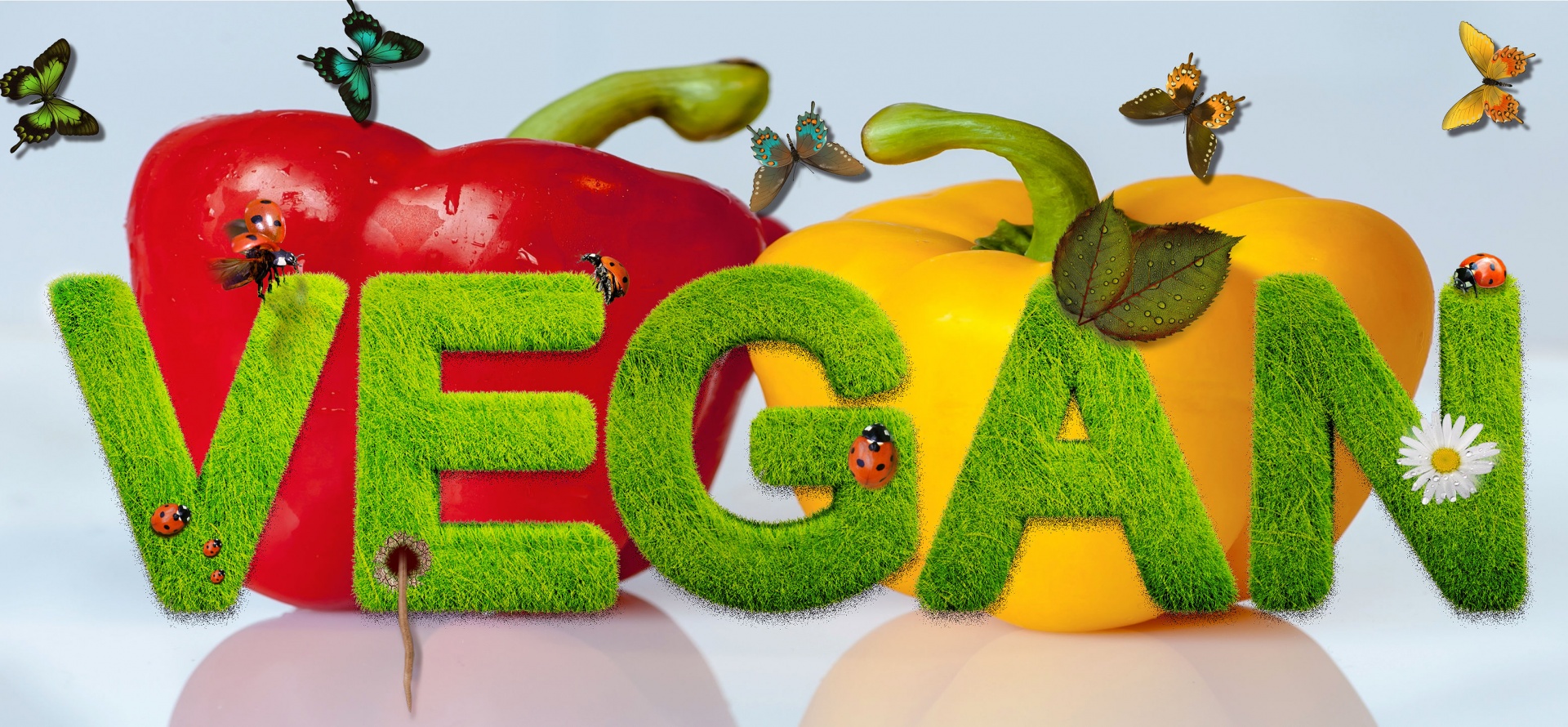
The vegan diet is becoming more and more popular. The benefits of veganism range from health improvements (increased cardiovascular health, weight loss, reduced risk of cancer) to environmental concerns (decrease global warming, save the animals!). If you’re curious about trying a vegan diet, but worried you won’t get the proper nutrition, try the small steps below to make sure you are staying healthy!
First, let’s define a vegan diet. “Vegan” means containing no animal products: no meat, fish, eggs, cheese, milk, whey, you get the idea. Some vegans include honey as an animal product, but that one is debateable. The main concern people have when making the switch is “how will I ever get enough protein?” Don’t you worry, though, there are bountiful sources of protein from plant-based sources. The things you may want to track (at least in the beginning) include Iron and Vitamin B12. So let’s take a look at some steps to make a healthy transition to a vegan diet:
- Don’t Go Vegan Overnight: If you’ve been eating meat your whole life, the body will rebel if you suddenly take it away. So instead, ease into vegetarianism and then veganism. Start with the popular “Meatless Mondays”. Experiment with meatless breakfasts, lunches, and eventually dinners. Once you’ve comfortably eliminated meat, then you can tackle dairy (I found this one very challenging!) The most difficult part of this transition will be making these changes while eating at restaurants. When you scan the menu at an average restaurant, you will notice a few vegetarian dishes, and rarely one vegan dish. You can use apps like Happy Cow to help you hunt for vegan restaurants. But I suggest that you stick to cooking at home – just like with any healthy diet!
- Avoid Vegan Junk Food: did you know oreos are vegan?… Just because a food is vegan, doesn’t mean it is healthy! So avoid wasted calories on vegan junk foods and save your calories for nutrient-dense foods. Your body will love you for it!
- Find New Protein Sources: I mentioned that protein isn’t a huge worry for vegans – but you still need to consciously include protein sources with every meal! But now, you get to experiment in the world of plant-based protein. Your new “meats” will be legumes (beans and lentils), soy, nuts and seeds. I recommend you begin by cooking the same meals as before, but wherever you would have cooked meat, replace it with a legume! Lentils are my favorite – they are highly nutritious, super tasty, and have as much protein per gram as most meats.
- Load Up on Fruits and Vegetables: produce is going to constitute the backbone of your diet (as it should with any diet). Load up on fruit at breakfast and fill your plate with veggies at lunch and dinner. The more produce you eat, the more fiber, vitamins, and minerals your body will process.
- Consider a B-VItamin Supplement: the nutritional experts of a plant-based diet generally agree that vegans can benefit from a Vitamin B supplement. I agree for the most part. I include Kombucha and Nutritional Yeast in my daily diet, which drives-up my vitamin B intakes AND probiotics! But you won’t know for sure unless you are tracking your intakes. So take the time when first starting a vegan diet to track your intakes and supplement whatever nutrients you are lacking.
Veganism is a big life choice – but it doesn’t have to be hard! If your motivations are high enough, and you are conscious about your food choices, you can live an abundant life as a healthy vegan.
